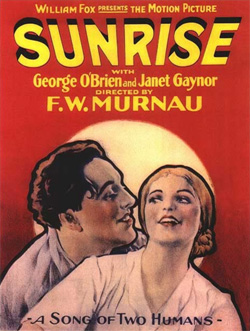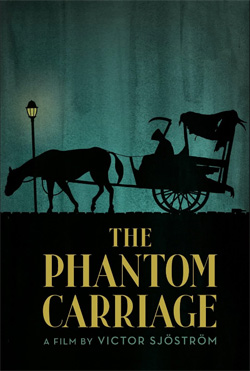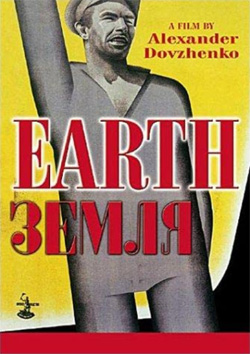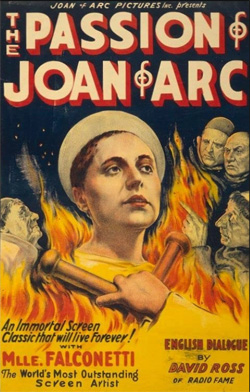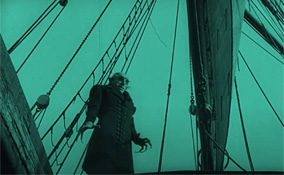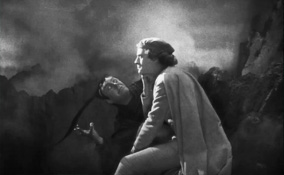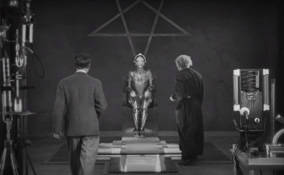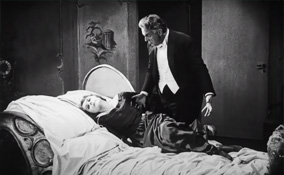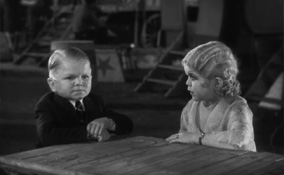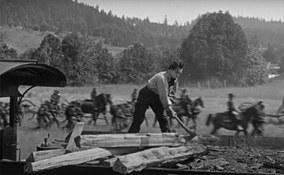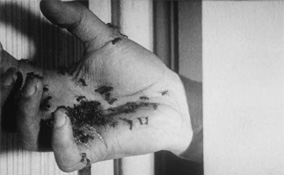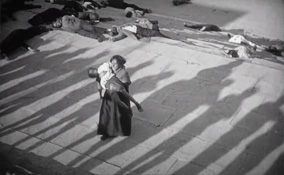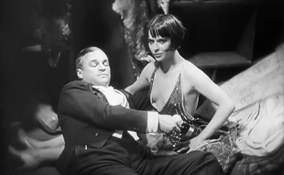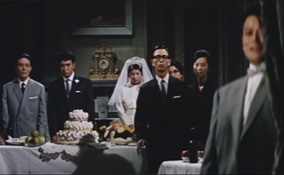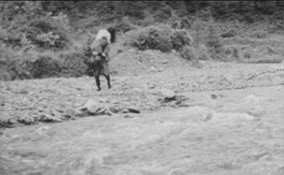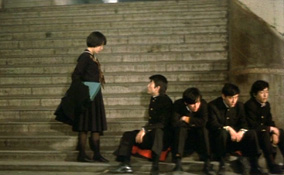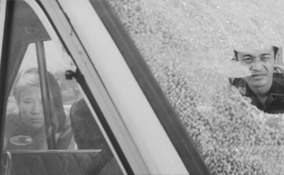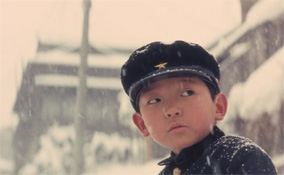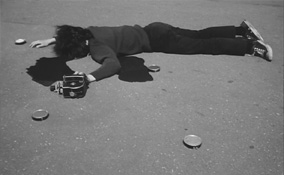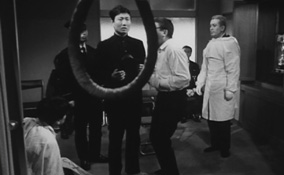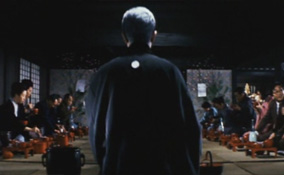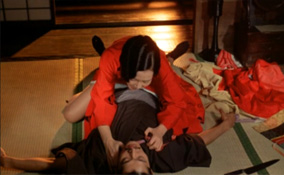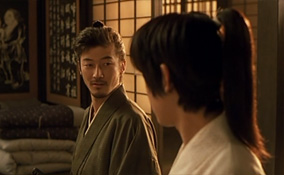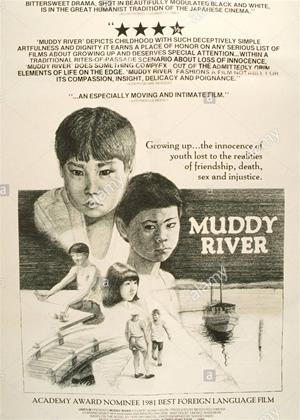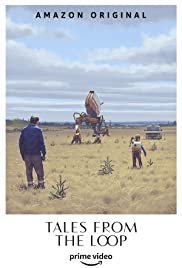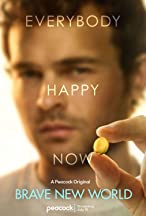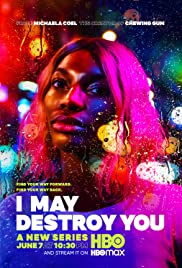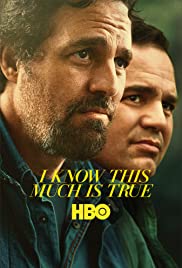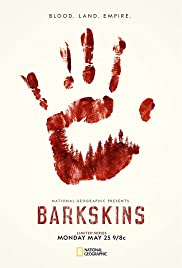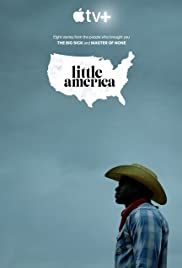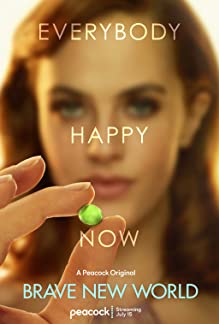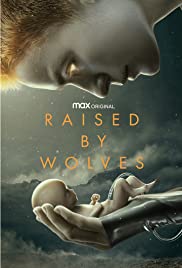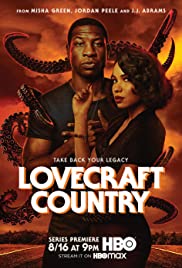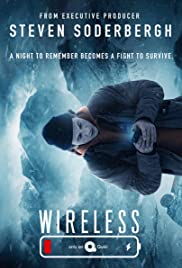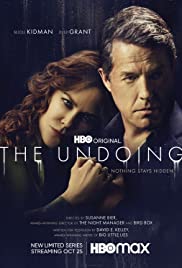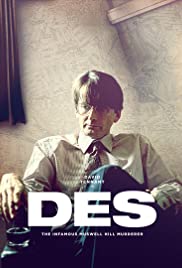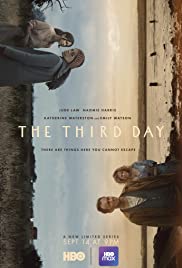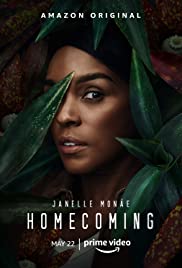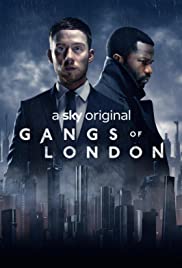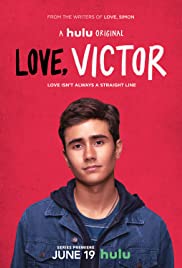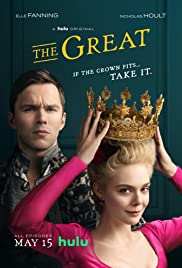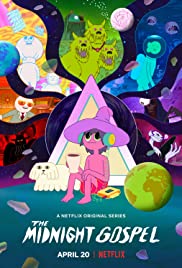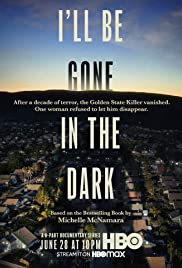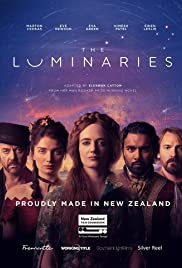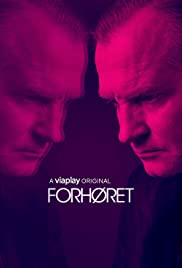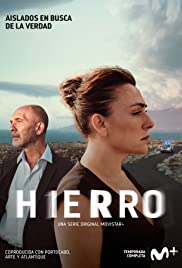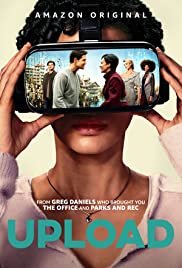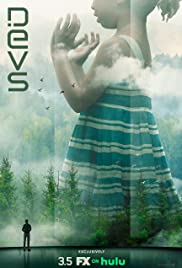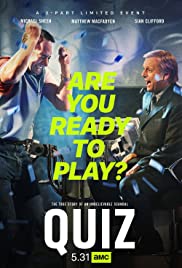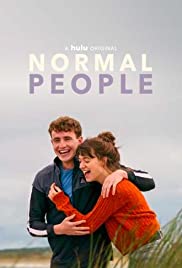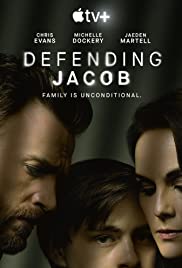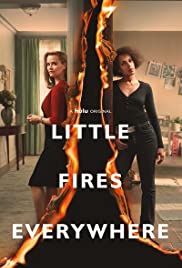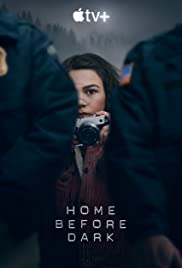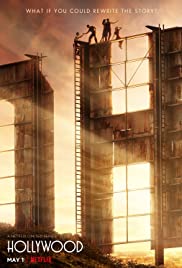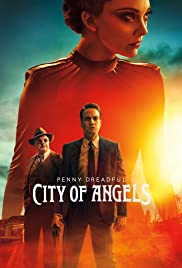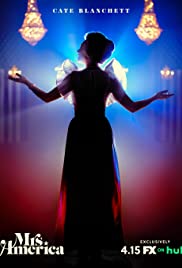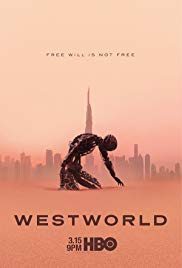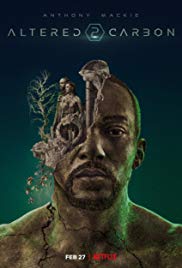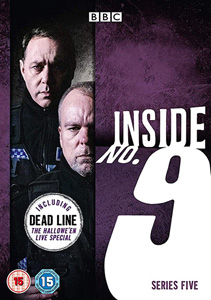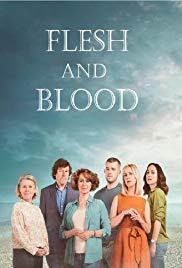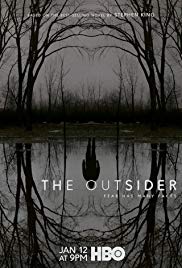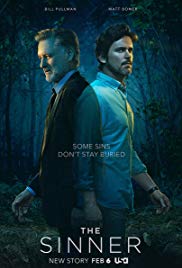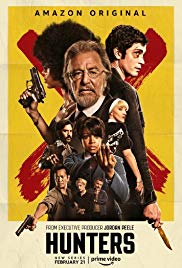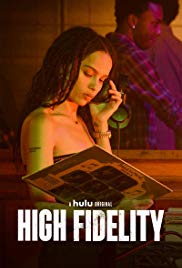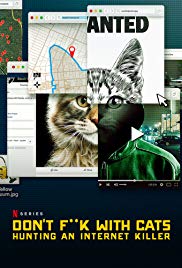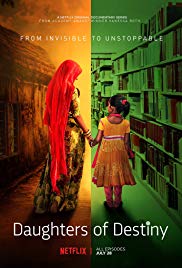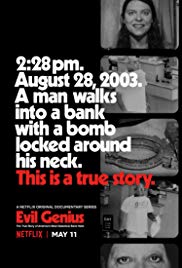|
|
|
|
[Marvel movies]
are cinema. So is that cat video on YouTube, it's cinema. It is kind of surprising that what we used to regard as adolescent entertainment, comic books for teenagers, has become the dominant genre economically. Each generation is informed, and informed by literature, or informed by theater, or informed by live television, or informed by film school. Now we have a generation that's been informed by video games and manga. It's not that the filmmakers have changed, it's that the audiences have changed. I turned to writing a script as personal therapy. I was alone and living mostly in my car—you could sleep at those big porn theatres at night—and drinking, drinking, drinking. I had a bleeding ulcer at twenty-five. I went into the hospital, and, while I was there, I had the image of this taxi-driver. That's me—this kid in this bright-yellow coffin, floating through the open sewer of the city.
|
||
Note: As we are approaching centennial of silent cinema's golden age, here are my favourite "motion pictures" from silent era. 1916: Intolerance (D.W. Griffith, USA) [watch] Then sound appeared. These are my favourite early masterpieces of "talking pictures". 1930: All Quiet on the Western Front (Lewis Milestone, USA) ++++++++ The golden age of silent cinema happened in the Roaring Twenties when western world came out of World War I (1914-1918), the end of empires and Spanish flu pandemic (1918), it entered period of economic prosperity, new trend of lifestyle and edgy cultures. Someone perfectly summarized silent cinema era with: German expressionism, Soviet montage, Hollywood melodrama and French avant-garde. My most favourite directors of this era are F.W. Murnau and Victor Sjöström(Seastrom) who made their best films in both their homelands and United States. Sjöström's The Phantom Carriage (1921) [watch] is Ingmar Bergman's inspiration for The Seventh Seal (1957) and Wild Strawberries (1957) where Sjöström acted as main protagonist of the latter film. Murnau's The Last Laugh (1924) [watch] was called Citizen Kane of silent era for using several techniques to show downfall of its protagonist, though both films' protagonists are not likeable to me. I recommend watching Murnau's Nosferatu (1922) [watch] and Faust (1926) [watch] in this pandemic. Very thought-provoking. They might originally evoke memories of Spanish flu pandemic that engulf Europe in 1918. And if anyone reading this has never seen Murnau's Sunrise (1927) [watch], do it now. It's the epitome of this seventh art form called cinema. I'd had false expectation for Fritz Lang's ambitious Metropolis (1927) [watch] being more scientific, it happens to be more likely of witchcraft within futuristic city. Metropolis combines elements from Frankenstein, Pied Piper of Hamelin, the Hunchback of Notre-Dame and Middle Ages' witch hunts with pseudoscience, and still disappoints. Or, its influences can be seen in so many films through a hundred years, thus make the original film seems cliche. Lang's criminal-mastermind thriller, Dr. Mabuse, The Gambler (1922) [watch] is much more complex. This 4-hour film sinks us audiences into hopelessness while predicting arrival of the demagogue that will lead whole Germany into absolute darkness. Someone pointed out that it's like Gotham city without Batman. In this serie's follow-up, The Testament of Dr. Mabuse (1933) [watch], the mastermind commands his "empire of crime" from mental asylum, it somehow echoes Hitler's time in jail writing Mein Kampf (My Struggle). This was Lang's last German film before he fled Nazi to Paris and started career in Hollywood. Tod Browning's The Unknown (1927) has very unique atmosphere and promising beginning but its ending is kind of weak. This description can also be used for his most-acclaimed sound-film Freaks (1932) which its humanistic view of dwarfs and disables in circus could shame David Lynch's portrayal of them in his films. I usually don't care about Buster Keaton. But after an hour of unfunny slapstick, the last part of The Cameraman (1928) [watch] is brilliant. His epic The General (1926) [watch] cleverly makes jokes out of both North and South armies of American Civil war, but his clumsy character annoys me all the time. Though I know that is the point of his films: a flawed human who accidentally achieves great things in his life in the end. I think these exaggerated physical-movement comedies of Keaton and Chaplin are meant to be seen in theatres full of people laughing, cheering and talking to each other, like watching circus, not sitting quietly in the dark as we do now. if Chang: A Drama of the Wilderness (1927) [watch] was made today, it would be outrageous. This American film shot in northern Siam is not a documentary but a comedy with plot that was arranged to show people's way of life with some cultural display. The strong point is that these filmmakers didn't show agenda, they just wanted to show things they thought amusing and exotic, that makes Chang feel honest. Time also helps making it become more valuable than it should be. If this comedy about man versus wild nature, was told entirely from animals' points of view, it would be a tragedy, a sacrifice for human civilisation. The filmmakers of this film went on to make legendary King Kong (1933) [watch]. Marcel Duchamp put urinal in gallery in 1917 at the starting point of Dada, the anti-art movement responds to madness of World War I (1914-1918). This is the art of the nihilist that intended to shock and later founded the basis of Surrealism after the war. In cinema, René Clair's Entr'acte (1924) [watch] was called pure Dadaist film. Bunuel x Dali famous collaborations, Un Chien Andalou (1929) [watch] and L'Age D'or (1930) [watch], are Dada x Surrealism. Cow in a bedroom, horsecart in a party - these films are interesting mess, everything is against rational thoughts. Bunuel then moved to Surrealism with more plot and meaning. His surreal "documentary" Las Hurdes (1933) [watch] still makes argument - is it social documentary about very poor village or satire mockumentary to documentary about third-world poorness? Ménilmontant (1926) [watch] is one of the most acclaimed French avant-garde film. With no intertitles, its story is hard to follow if you never read its synopsis before. I had to watch this short film several times just to understand its story. There are some powerful scenes but I guessed it would be more effective if I understood its main storyline. So here is its synopsis: A couple was brutally murdered in the working-class district of Paris. Their two daughters move on to live in the city. Both of them are in love with a same Parisian guy. Abel Gance's Napoleon (1927) tells story of Napoleon Bonaparte from childhood through French Revolution and Reign of Terror to the moment before he became emperor. This 5 hours 30 minutes film is... very long with very good storytelling and little drag. It's long enough to make me forget what I was waiting for.. and suddenly it happened. At the last 20 minutes, Napoleon stretches from one screen to three and it's spectacular. Even I watched it on small screen, I could imagined how wonderful it would be in theatre. Absolutely epic. Sergei Eisenstein is a genius artist who mostly made shallow Soviet propaganda films in silent era: pre-revolution Strike (1925) [watch] and his most famous Battleship Potemkin (1925) [watch]; during-1917-revolution October (1927) [watch]; and post-revolution Old and New (1929) [watch]. Watching his films back-to-back is very exhausted because they are always about angry proletariats shouting to each other. Old and New is my most favourite silent Eisenstein, it shows communist ideologies in very interesting ways. His very short Romance Sentimentale (1930) [watch] is a breath of fresh air where Eisenstein bacame French avant-garde. He later made Bezhin Meadow (1937) [watch] that was believed to be destroyed by Soviet authority. It tells story of a boy who betrays his father, just to protect the Soviet state. Josef von Sternberg's The Last Command (1928) [watch] about ex-general of imperial Russia who fled Soviet revolutionists and end up an extra in Hollywood film, is surprisingly full of heart. He also made Underworld (1927) [watch] which was called the blueprint of gangster movies. That was before Marlene Dietrich came and dominated von Sternberg's films (and his love life) starting from The Blue Angel (1930), which I can't stand that naive professor whose obsession with Dietrich's Lola pulls his life down to disaster. In the same manner, I hate Georg Wilhelm Pabst's famous Pandora's Box (1929) [watch] for its unconvincing plot of that despicable woman (Louise Brooks' stunning Lulu) and all weak men (and a lesbian) who voluntarily go down to hell with her. [There was a trend of the time that presented progressive women as biblical evils who will finally destroy decent men. The best example is Greta Garbo in Flesh and the Devil (1926).] Words say there were hundreds of queer silent films during Weimar Germany. But only two survived Nazi regime: fragmented Different from the Others (1919) and, very subtle, Dreyer's Michael (1924). The first one could be educational film for psychology class, it's very progressive on gender spectrum. Actually, early 20th century was very advance on sexology with Sigmund Freud and Magnus Hirschfeld who also appeared in Different from the Others. Sound films came in time to provide escapist movies for 1930s' Great Depression. Musicals, gangsters and monsters, Hollywood enjoyed its freedom for awhile before Hays Code seriously enforced in 1934. This form of censorship lasted for three decades until it was replaced by rating system in 1968. ++++++++ Keep in mind that some silent films originally showed in silence and some with live music. So soundtracks of silent catalogues were added later in sound era. Some recently rediscovered silent films may use modern soundtracks which mean they are still not available in Public Domain. And sometimes modern soundtracks ruin those silent films. (A week ago I happened to find full-length video of Chang: A Drama of the Wilderness (1927) on Youtube. So I saved its address for this note. Now when I'm about to post, I find out that the video was removed "due to a copyright claim by Milestone Film & Video". I guess it may be the restored version that hold its own copyright. This incident could happen to other 100-year-old movies on any website. So enjoy them while you still can.) Watch more... Read further...
|
||
The path of my films is like planting a tree. After being planted, it grows by itself. I know what kind of tree it is, but not what shape it will grow into. The title of the documentary film
["The Most Beautiful Boy in the World" ]
comes from a tag that Luchino Visconti gave the boy
[Björn Andrésen] at ["Death In Venice" ] film's world premiere in London. However, two months later, at the 25th edition of the Cannes film festival, with the uncomprehending Andrésen sat beside him at a press conference, he would talk about their first meeting saying "He was even more beautiful back then. He has aged now — you can see he's at an awkward age". This is an unprecedented time within history. It's Japan's responsibility to make this Olympics work and to take these measures against what's happening in the world… and to reinterpret that idea of the essence and ethos and spirit with which the Olympics began. The message that [boomers] communicated to their kids was that there's no point in trying to change the system. The only reasonable motivation is self-interest, and the dominating political force in American life is materialism. You've been given examples by your parents that idealism is pointless. That's how you end up with this group of filmmakers who seem to embrace nihilism as an overriding philosophy.
These are two forms of life that are not shared but they are complementary. Each one is living in their own tunnel, but each one is interlaced with the other one. Life is a bit like that. The only true reality is the addition of all the perceptions of it. Originally, I didn't think I'd do the whole movie with a split screen. I started shooting with two cameras and then with only one single camera. Then I realized “what the fuck, I should've shot with two cameras if I wanted to keep it with the split screen for the whole movie.” So we had to reshoot some scenes and the missing parts. I'm very happy we did that. [Akira Kurosawa] combined two qualities not always found together in filmmakers. He was a visual stylist, and a thoughtful humanist. His films had a daring, exhilarating visual freedom, and a heart of deep human understanding. He often made movies about heroes, but their challenge was not simply to win; it was to make the right ethical choice.
|
||
Note: Nagisa Oshima's Night and Fog in Japan (1960**) is about conflicts and decline of leftist movement after violent clash between student protesters and police on June 15, 1960 with flashback to 1950. The film was released in October 1960 and pulled out of theatres three days later by Shochiku studio, in the wake of Socialist Party politician's assassination. Oshima openly condemned this film withdrawal as politically motivated censorship. ... He then parted way with Shochiku studio and founded his own company, Sozosha. His films became more complex and more experimental. Some of them need information and interpretation to understand messages beneath colorful events. ... Violence At Noon (1966***) tells story of a serial rapist who emerged from collapsing communist commune. Two early victims from the commune, one is his wife, contact each other to discuss about his crimes. Both women once thought that he was in love with them, now realise that he is just a rapist. ... In Sing A Song Of Sex (1967**), a teacher tells his students that folksongs about sex are the suppressed voices of the people - they sing them without realising that they are oppressed because they have no other choice in lives. Later, four male students start singing sex song as an excuse for doing absurd things with no responsibility, for the whole film. ... An American lonewolf starts shooting random people in Tokyo in Japanese Summer: Double Suicide (1967**). Old yakuza members, suicidal guy, horny girl and hot-headed boy hear the news from radio then risk their lives to join this foreign criminal. In the country that was defeated in the war, people desperately try to do anything to be proud of themselves again. For me it's an average film with very impressive frame compositions. ... In Boy (1969****) Oshima revisited his famous theme - youth extorting money from people; selling pigeon in A Town of Love and Hope (1959***), sex in Cruel Story of Youth (1960***) and car accident in Boy. With war-torn abusive father and fake mother, the boy slowly learns the trick and accepts his family's con-life. Through the whole film, the boy has no name, no school, no life and no ability to express his own feeling. He is Oshima's metaphor of postwar Japan that still looking for its identity. ... The Man Who Left His Will On Film (1970***) is existential, meta-fiction, and anti-politics - all of them together at once. A Bolex cinema camera was stolen from the protagonist. The thief shot some films and committed suicide. Then the protagonist looks for film reel that should be left in the camera to prove that the thief really exists, or not. The protagonist is in state of post-leftist and now asking existential question about life and identity. ... The Man Who Left His Will On Film also asks - should films be used as political weapon? The camera turns into machine gun at one point. I guess this film must be inspired by Antonioni's Blow-Up (1966****) which was loosely adapted from Julio Cortazar's short story. Both films capture post-ideological atmosphere of the time and emptiness of life with no purpose. (I think both films' messages are very anti-Godard at the moment.) ... Oshima also directly attacks conservatives and nationalists in his masterpieces Death By Hanging (1968****) and The Ceremony (1971***). These films are very sharp and straightforward. ... From late 1970s Oshima stopped making films about present Japan and started pushing boundaries by making the most infamous films of his career: In the Realm of the Senses (1976**) and Empire of Passion (1978***). They are daring with excellent directing but deliver mediocre messages. He then told story involving sex with animal in Max mon amour (1986**) and explored homosexuality in last period of his life with Merry Christmas Mr. Lawrence (1983***) and Taboo (1999**). ... Taboo in Taboo isn't homosexuality since every characters in this samurai film are fine if any guy has male lover. At first I thought it meant jealousy because Kitano's character cites that jealousy in men is dangerous, it can cause fatal chaos in this militia group of samurai. But after I learned more about Japan history, now on my second viewing I realized that, except two main protagonists, every characters are historical figures. They are praised as national heroes and repeatedly appear in books, films, manga and anime. Most of these real-life heroes are portrayed in Taboo with homoerotic tendency toward beauty of this young samurai. I heard Japanese audiences felt offensive with this film. Oshima broke the ceiling. This is how scandalous it is. ... P.S. Oshima, like Imamura and new wave directors of 1960s, often used rape as metaphor for power of patriarchy and establishment. This makes films from that era very misogynistic comparing to previous generation of Ozu, Mizoguchi and Naruse. Is it legacy of the wars? ... P.S.2 To summarize every other Oshima's films I watched... ... ป.ล. ถ้าจำไม่ผิดหนังสือ "ศิลปะแขนงที่เจ็ด" มีบทความเกี่ยวกับ นางิสะ โอชิมะ อยู่ ผู้เขียนยังไม่มีโอกาสเช็คข้อมูล เพราะตอนนี้หนังสือไม่ได้อยู่กับตัว Read further
|
||
I'm a country farmer; Nagisa Oshima is a samurai.
|
||
Note: The first half of 20th-century Japanese cinema was strongly shaped by censorships: prewar military censorship and postwar American censorship. Most of period films about prewar era that were made after WWII always had obvious anti-war messages that sometimes feel out of place. ... Ozu's early films often show wartime realistic poverty but avoid talking about elephant in the room. Mizoguchi's 47 Ronin (1941) is such a beautiful pro-war propaganda. Gojira/Godzilla (1954) is very clever war allergory. Kurosawa's Seven Samurai (1954) - is that American robbing Japan's village? While mainstream cinema was full of samurai flicks, new wave directors of 1960s turned to sex, criminal, marxism, radicalism, and experimental narratives. ... Here is my list of favourite epic films chronicling 20th-century Japan: ... Considering historical events, Shohei Imamura's Zegen (1987) should be included though this ultra-nationalist satire a bit underwhelms. (I chose Zegen over Kei Kumai's famous Sandakan 8 (1974) which story happens almost at the same places and period of time.) ... Yasuzo Masumura's The Red Angel (1966) sounds like a softcore porn movie in war, but he made it to be a very serious film, though sexually exploitative. I'm not sure how I feel about this strange kind of beast. He also made brilliant Giants And Toys (1958) about world of capitalism and media, that's way ahead of its time. ... The main protagonist of Masaki Kobayashi's magnum-opus Human Condition Trilogy (1959-1961) is too idealistic and too melodramatic that it annoys me. And the Chinese parts played by Japanese actors are worse. But it still achieves as one of a few Japanese films that directly depict Japan's brutality in wars, including Kei Kumai's The Sea and Poison (1986). This kind of films always has super-naive protagonists that may satisfy postwar Japanese audiences to side with, more than brutal majority in those films. Some would say this is the legacy of American censorship after WWII. ... In his masterpieces, The Burmese Harp (1956) and Fires on the Plain (1959), Kon Ichikawa masterfully make anti-war films without putting preaching words in characters' mouths or throwing messages into audiences' faces. Akira Kurosawa's No Regret for Our Youth (1946) ends like communist propaganda that may predicts 1960s movement. ... I had been amazed by synopsis of Nagisa Oshima's A Town of Love and Hope (1959) for a long time. When I finally saw the film, this postwar-inequality cautionary tale didn't disappoint me at all. His The Sun's Burial (1960) - meaning Japan's funeral - may be the most pessimistic film about this country. Pigs and Battleships (1961) is Imamura's screaming at postwar society full of pigs (Japanese) and battleships (American), its ending is thought-provoking. Actually I can complete this whole list with filmographies of Imamura and Oshima alone. ... On my first watch of Muddy River (1981) twenty years ago, I thought it's a mediocre coming-of-age story of a boy. Now on my second viewing, Muddy River is very deep and heartbreaking story about war-surviving parents of both kids. ... Every era has rebellious younger generations of their time. Rebellion in Japan peaked with street demonstrations in 1960s and 1970s. From Crazed Fruit (1956, Kô Nakahira), Everything Goes Wrong (1960, Seijun Suzuki), Throw Away Your Books, Rally in the Streets (1971, Shuji Terayama) to The Man Who Stole the Sun (1979, Kazuhiko Hasegawa) - these kids rebel with or without a cause, usually take aim at parent generation who created wars, and try to find something to fill their invisible voids. The bad (or best) example is The Youth Killer (1976, Kazuhiko Hasegawa), I wish every characters just shut up and died. ... On the other hand, Oshima's films approach youth movement with more criticizing voice, from Cruel Story of Youth (1960) to The Man Who Left His Will On Film (1970). This kind of expressive and nihilistic films disappeared completely in 1980s with japan's economic boom. The closest may be The Family Game (1983) which is satire of the genre. ... Late 1990s saw many impressive teen movies returned: Like Grains of Sand (1995), Kids Return (1996), Eureka (2000), Go (2001), All About Lily Chou-chou (2001). They all are great but become narcissistic and repressive, in the time of Japan's economic recession. ... While expressive experimental films went underground with heavily manga influenced Tetsuo: The Iron Man (1989) then became mainstream with Battle Royale (2000) directed by Kinji Fukasaku who made that yakuza saga, Battles Without Honor and Humanity (1973). ... (Battle Royale original novel takes place in fictional
Republic of Greater East Asia in an alternate timeline where Japan won WWII. This military program is launched to stop people's rebellion to state.) ++++++ Some of films on the list above is not my most favorite films of those directors. So here are my most favorite Japanese films alphabetically. After Life (1998,
Hirokazu Koreeda) My favorite Japanese directors are: My discoveries from recent marathon-viewing are: ++++++ Read more
|
||
I think that Hayao Miyazaki's films not only caught the zeitgeist in the late 20th Century, for audiences just starting to come to term with environmental issues, but also in the 21st Century, with millennials growing up with a sense that their world has already been despoiled. Makoto Shinkai said it best, about his controversial ending for Weathering With You (2019), when he said that he couldn't bring himself to have a hero save the world, when the real world is already past saving. He said it felt dishonest for young viewers to tell them that there was any possibility beyond somehow learning to cope with the damage that humanity has already done to the world. I think Miyazaki's works are a little bit more optimistic than that – he's ready to start with planting a single tree, and encouraging everybody else to do the same. These streaming services have been making something that they call 'movies.' They ain't movies. They are some weird algorithmic process that has created things that last 100 minutes or so. Bruce Lee had no respect for American stuntmen, he was always hitting them with his feet. It's called tagging when you hit a stuntman for real. He was always tagging them with his feet and his fist and it got to the point where they would refuse to work with Bruce. He had nothing but disrespect for American stuntmen. It was probably just like, ‘Oh they're just not good enough. They are pussies. I want to make it look real!' But stuntmen don't like that. That's unprofessional. The definition between [Cinema and TV] gets a little fuzzy, but the one thing that remains pretty consistent is stuff that's narrative-based—where it's based on writers and characters—that's for TV. While I think cinema can do very well with those things, it can also go beyond that. It can bend time and deal with image, sound, color, all those poetic properties that are harder to define. I think that's the distinction between how cinema and television is made. It has nothing to do with how it's shot. It's the attitude. I've done very little television, but they're run by showrunners and change directors. I remain very much a person who loves to give myself to a director, doing their bidding or inhabiting what they need me to do. That's freedom for me, service for me, enjoyment for me. Tarantino is brilliant in his own right, but he's not making movies about things that happened recently. Or things that ever happen. He's making movies about pieces of movies, and ideas from movies. About time. If he's guilty of a crime, incarcerate him. If not, let him act. Many great artists have been bad people. I think it's really important to put in context that I started my producing career in the 80s. It was right in the middle of the AIDS crisis. I think what that did was cause a great acceleration. There was a sense of urgency that if we didn't tell our stories, nobody else would. And nobody cared what was happening to our community. I try and describe that time to young queer people, and it's hard for them to grasp the disenfranchisement we felt. It felt like our community was dying this horrible death every day, and there was no sense that it mattered. Well, a feature film . . . hopefully, if you're an artist, each time out you have a problem, a subject matter, and you need to create a style that really works. With [TV] episodic, you create a template, and then directors just follow that template. So if you're doing “The Crown,” you're doing a lot of soft focus, backlighting. They all look the same. And that's a kind of a comfort, too, because every time you watch “The Crown,” you know exactly how it's going to look. The challenge of independent film is creating something that feels new, and that is going less and less in favor. And I think you can just look at film criticism to see that, because I remember when people would read film criticism and say, “What's new? What do I need to see? What's this film that Oliver Stone did about Vietnam? I think we should see that.” That seems to be less and less part of the conversation. Our population could just suddenly dip and disappear! I talked to an expert on this recently, and I said; 'Tell me the truth'. He said with mass consumption continuing as it is we will have less than 50 years… I'm hoping I'll live another 30 years. I want to see the sea rise over Tokyo and the NTV tower become an island. I'd like to see Manhattan underwater… Money and desire – all that is going to collapse, and wild green grasses are going to take over. I remember Jonathan Demme saying on the first day
[of “The Silence of the Lambs” shooting] —it was a Monday in January, 1990—“How do you want to be seen when Jodie comes down the corridor?” I said, “Standing in the middle of the cell.” He said, “Standing? You don't want to be reading? Why?” I said, “Because I can smell her coming down the corridor.” John said, “You're weird .” What he is, in a way, is a lover, because he's impressed that this young, physically vulnerable woman comes to visit the monster. Lecter thinks, God, she's courageous. But I'm going to take the mask off her now, so she can learn from me. He strips her down to make her a better person. Back in 2008 I starred opposite Clint Eastwood in ‘Gran Torino' playing the lead Hmong role in a tale of two people transcending their differences to form an unlikely human bond. It was a historic cinematic moment for Hmong people around the world, despite its copious anti-Asian slurs. In a movie theatre, you watch movies with the significant others in your life, but also in the company of strangers. That's the magic we experience when we go out to see a movie or a play or a concert or a comedy act. We don't know who all these people are sitting around us, but when the experience makes us laugh or cry or cheer or contemplate, and then when the lights come up and we leave our seats, the people with whom we head out into the real world don't feel like complete strangers anymore. We've become a community, alike in heart and spirit, or at any rate alike in having shared for a couple of hours a powerful experience. That brief interval in a theatre doesn't erase the many things that divide us: race or class or belief or gender or politics. But our country and our world feel less divided, less fractured, after a congregation of strangers has laughed, cried, jumped out their seats together, all at the same time. Art asks us to be aware of the particular and the universal, both at once. And that's why, of all the things that have the potential to unite us, none is more powerful than the communal experience of the arts. If further viewing is ‘suggested' by algorithms based on what you've already seen, and the suggestions are based only on subject matter or genre, then what does that do to the art of cinema?
Algorithms, by definition, are based on calculations that treat the viewer as a consumer and nothing else. Terrence Malick is quite an extraordinary guy, and I love some of his movies very much, but the problem with Terry, which I soon found, is he needs a writer desperately, because he insists on doing everything. He insists on writing, and overwriting, and overwriting, until it sounds terribly pretentious. You have to work terribly hard to make it sound real. And then he edits his films in such a way where he cuts everybody out of the story. Terry gets terribly involved in poetic shots… which are gorgeous, but they're paintings. All of them. He gets lost in that, and the stories get diffused, particularly in our film [
“The New World” ].
|
||
Note: I just rewatched Zhang Yimou's To Live, and it made me want to revisit chinese epic films that timelines span through 20th-century China/Hong Kong/Taiwan. This is my list of favorite ones chronologically.
|
||
Note: My watchlist
|
||
Note: My favourite series of 2020.
|
||
I think there's something sexy about casting a straight actor to play a gay role — if they're willing to invest a lot into it. In our world that we live in you can't really as a director demand that [an actor be a given sexual orientation]. Who's to determine how gay someone is?
I played a [straight] character for nine years who was nothing like me. I would definitely want to hire the best actor. I don't have to spend time servicing straightness, straight relationships. Acting is investigating for me, mapping new territory, articulating things I don't get to articulate in my day-to-day. Mapping straightness, at this point... feels like a dead end. I'd like to tell — to watch — more stories where gay characters are informed by their struggles, but not defined. Not getting sacrificed so straight characters can enjoy some kind of epiphany. I don't think that's too much to ask. I'm not being woke about this… but I feel strongly that if I cast someone in a story, I am casting them to act as a lover, or an enemy, or someone on drugs or a criminal or a saint… they are not there to ‘act gay' because ‘acting gay' is a bunch of codes for a performance. It's about authenticity, the taste of 2020. You wouldn't cast someone able-bodied and put them in a wheelchair, you wouldn't black someone up. Authenticity is leading us to joyous places. I saw thirty minutes of [“Fight Club” ] only because our trailer is playing in front of it. And I would love to go on railing about the movie, but I'm just going to pretend as if I haven't seen it. It's just unbearable. I wish David Fincher testicular cancer, for all of his jokes about it, I wish him testicular fucking cancer. Yeah. Look, I've been through cancer with somebody that I love, and I can understand if somebody thought... I didn't think that we were making fun of cancer survivors or victims. I thought what Chuck [Palahniuk] was doing was talking about a therapeutic environment that could be infiltrated or abused. We were talking about empathy vampirism. Cancer's rough. It's a fucking horrible thing. As far as Paul's quote, I get it. If you're in a rough emotional state and you've just been through something major.... My dad died, and it certainly made me feel different about death and suffering. And my dad probably liked ‘Fight Club' even less than Paul did. What I find is people who just watch the movies to be entertained and have a good time, they get the movies and they understand the movies far better than people who fight the movies, who feel they're in some kind of chess match with the movie while they're watching it. And the reality is, the reason people get frustrated like that is because it's not a level playing field. I've had 20 years to think about these ideas. So it's not a level playing field in that sense. It's not meant to be a chess match between filmmaker and audience. It's entertainment. It's a ride you go on and, if done right, there will be aspects to it that will reward a second viewing. When you're dealing with time and when you're dealing with these sorts of complexities, you have to be making a film that the second time you watch it would be a different film. Roger Deakins made jokes about my iPhone. For people who don't know. Roger was traumatized that I had ‘The Thin Red Line' from Terrence Malick on my iPhone and Roger thought it was horrific. Me, I thought it was cool because I could take the movie with me. It's not the same, but the thing is…I want to fight for the big screen, but a lot of my cinematic experiences have actually been on television.
|
||
บันทึก: กำลังติดตามอยู่ตอนนี้
|
||
You know what happened? We've hit ‘Anomalisa'. We made it ourselves. We made it in the middle of nothing in the middle of nowhere. We didn't know what we had. We finished it. We started sending it to Telluride and Venice and Toronto [film festivals], and these people went crazy for it. And it won! And everybody was bidding on it to buy it, because we didn't have distribution. And we won the Silver Lion at Venice . And I thought, holy cow. When I am enjoying a film I just don't see editing. I find over-cutting is just the curse of what I see on television, in particular on streaming shows. It's just reactions shoehorned in everywhere and fast cutting for no reason. I feel like somebody is dragging me. I feel like I'm being manipulated and I reject that. That's the worst mistake [in editing], for me. People have died all the way through human history, but people live like they are immortal. They don't want to think about death. But now, every person is [aware] of death. That is good for the progress of consciousness. We will become more conscious. Miramax was a place that gave me an incredibly big shot, but it was also an incredibly thuggish place to work. It had a very unusual environment at that time. [It was] this place that seemed golden, in Hollywood's eyes, and in the zeitgeist. You felt honored to be included, but you also felt like you were a cog in a system that was dark and corrupt. It seemed like everyone was reading their own clippings and feeling thrilled to be part of this club that was the hottest little studio in the world. The power of the screen has always been its intimacy– at least up to CinemaScope, which I hate. The director would command an audience to see only what he regarded as dramatically important. He used the close-up to say something without distractions. But Godard never uses any close-ups, which is contradictory since he and his contemporaries are interested in form. I'm more interested in content, I must confess, but something does come out of the form-over-content thinking. ‘Dune' is a book that's like Proust. It's science fiction but it's very, very literary. It's very difficult to find images to put in the film because pictures are optical. When I had the idea to do that, it was in an ecological [crisis]. I was feeling what all the people feel today. We're in an ecological problem, because the Earth is changing, and your crazy President doesn't believe that. That is ‘Dune' in the beginning. It's a weird business, the film business. We honor creativity and talent and we forgive the brilliant ones. Unconsciously, we probably do enable them by turning a blind eye to whatever they're doing and taking their product and putting it out to the world...
You have to understand, [Bryan Singer] was brilliant, and that was why we all tolerated him and cajoled him. And if he wasn't so fucked up, he would be a really great director. At the peak of his fame Malcolm McDowell starred in Caligula, a fevered Roman epic bankrolled by Penthouse magazine. The production sounds hilarious; it was basically two films in one. First, McDowell played the mad emperor alongside a classy lineup of actors that included Helen Mirren, John Gielgud and Peter O'Toole. Then the producers brought in adult performers to shoot hardcore sex scenes to be deployed as extended cutaways, seemingly at random, so as to give the impression that McDowell was gazing wistfully at a lesbian orgy, or a gladiator getting a blowjob. “There's quite a good movie in there somewhere,” he says. “But not the porn stuff.” My films don't make money. In 2008, the first movie that I directed, Synecdoche, New York, came out, and it lost money. And at that time the movie industry, coincidentally, fell apart because of the economic crisis and studios stopped making movies and started making superhero franchise things. The sort of mid-budget movie that I've been working on, there was no outlet for it any more. It just didn't exist. The art of directing for the commercial market is to know just how far you can go. In many ways I am freer now to do what I want to do than I was a few years ago. I hope in time to have more freedom still – if audiences will give it to me. My wife grew up in Siberia. Her mother tongue is Russian. My mother tongue is Bavarian. Which is not even German, it's a dialect. But we decided, 25 years ago, that we would not speak in German or Russian to each other. Both of us leave the comfort zone of our language, and we communicate in English. This means that we are very cautious and careful. We are trying to articulate our feelings as closely as we can in a foreign tongue. And the result? In 25 years there has not been a single foul word that has passed between us.
|
||
บันทึก: กำลังติดตามอยู่ตอนนี้
|
||
Gone With The Wind and The Birth of a Nation are the most popular movies ever made (when box-office accounts are adjusted for inflation). These historical romances are interesting for divining American spirit; their art surpasses politics — even political correctness... Millennial moralizers don't understand that GWTW was the work of Hollywood progressives. Each character's life was given humane measure, which Hollywood no longer knows how to do... When maniacal progressives are on a censorious rampage — and our corporations and institutions go along with it — we lose our cultural foundation and deny the truth about ourselves. Timothée Chalamet afterward publicly stated he regretted working with me and was giving the money to charity. But he swore to my sister he needed to do that as he was up for an Oscar for Call Me By Your Name, and he and his agent felt he had a better chance of winning if he denounced me, so he did. The media made us stars and didn't take care of the subject of the film [La Haine]. They asked me questions where I said: ‘Don't ask me that, go to the projects and talk to the guys there.' But they didn't want to talk to them. Alfred Hitchcock created
North by Northwest for an audience. He orchestrated their oohs and aahs, when they would lean forward and when they would sit back. This wasn't about someone on the sofa at home getting distracted by their phone or the doorbell or going to get a drink. The place was full of energy and at the end everyone stood and applauded; just as they did when I saw Slumdog Millionaire at the ArcLight in Los Angeles. I saw The Thin Red Line in a cinema in Toronto in Canada when I was 20. I entered the theatre militantly atheist, depressed and with the belief that working in film was a superficial thing to do with one's life. I left the theatre with a glimpse of what faith meant, having been lifted and carried out of my sadness, and wanting to make my own films one day. In the dark of the cinema, among strangers, I was transformed. I'm not writing stories about societies falling apart at the moment, so read into that what you will. If you look at classic dystopian stories, it becomes every man for himself immediately. Actually, in this crisis, what's happened is you're more likely to be sitting indoors watching Tiger King and worrying that your neighbour's OK and asking to see if they need you to bring in a bag of potatoes or whatever. What's actually happening at the moment is much more cohesive and heartening. We're turning a 5-minute idea into a feature film! But then Jermaine
[Clement, co-director of What We Do in the Shadows ]
said ‘the world needs stupid shit' and I realized... Who wants to go and see a film that reminds us how terrible the world is? We need ridiculous movies to remind us that we're the dumbest, clumsiest animals.
|
||
บันทึก: กำลังติดตามอยู่ตอนนี้
|
||
Well, I spoke with Soderbergh, who's heading this DGA committee to restart production. I have about 85 percent of my film done. I could create a simulated version. He said not to do it, to wait, because a simulated version will never be the same thing. There are a lot of films out there where I don't know if they'll be able to go back. Michael Mann shot for a week in Tokyo. When is he ever going to be able to go back to Tokyo? Will I be able to make a film again over the next year? Have we seen Scorsese's last film? Eastwood's last film? Ridley Scott's last film? My last film? If we can't go back to work for a year, who knows what our health will be like? For Tarantino, Hollywood's golden glow is directly tied to the blonde hair and wide eyes of Sharon Tate. Long cited as the angel of innocence whose brutal murder marked the end of the 1960s era of free love, it's hard to watch Tarantino's feature and ignore the white privilege presented in its depiction of Los Angeles. The Hollywood of “Once Upon a Time in Hollywood” is one where minority actors and their struggles are erased or just non-existent. I wanted to do something specifically on three Hollywood icons who had, I believed, really been treated poorly. That was Rock Hudson and Anna May Wong and Hattie McDaniel. I was very interested in them, even as a kid... [They] were all in the LGBTQ community. Rock was gay and Anna May and Hattie were bisexual. I thought it would be interesting to give them the happy ending that they deserved — to have these fictionalized people, in a revisionist way, usher in a Hollywood that I wish had happened 50 years ago, 60 years ago. The first ‘Hellboy' movie was developed before even X-Men was on film. I remember visiting the ‘Mystery Men' set to try to convince Universal to green light it. It languished for a long time. To my mind, the first ‘Blade' was instrumental in showing how superhero movies could exist at the end of the 20th century. There was a collision of ‘Dark City' and ‘Blade' that somehow, in subtle ways paved the way for ‘The Matrix' to explode into the world. But, still, back then it was a countermovement to try and do superhero films, specially with material that didn't have Marvel numbers. Movies have become more about the aesthetic than the story and the content and what the film is trying to say. I find that pretty disappointing and pretty depressing.
“Wuhan: The Long Night” by Lan Bo
|
||
บันทึก: กำลังติดตามอยู่ตอนนี้
|
||
Giving Polanski a prize was quite a statement. The film is something a lot of people work on, not just him. Giving him the prize protects him – it says you cannot reach him and the French cinema elite will stick together: it's like a cinema mob and he's the godfather. [TV series is] certainly filmmaking, but it's not exactly cinema. In writing it, your rhythms are quite different. It can be pretty delicious for a writer. Perhaps less so for a director. It's not the same as directing a movie where you're completely responsible for the look of the thing, the casting, and so on. [But] many of the series that I've seen on Netflix or Amazon Prime have very, very good directing by directors I've never heard of. I don't know if I should say this or not. Not because it's lascivious or something, but because it's gonna screw me on the next mystery movie that I write. But forget it, I'll say it, it's very interesting. Apple, they let you use iPhones in movies, but, and this is very pivotal, if you're ever watching a mystery movie, bad guys cannot have iPhones on camera. Every single filmmaker who has a bad guy in their movie that's supposed to be a secret wants to murder me right now. We have a very modest goal for
[Velvet Goldmine ]. That's just to turn every gay person straight and every straight person gay. With globalisation comes a breaking down of barriers – directors can move around and plant their visions wherever they wish – but in auteur-driven cinema perhaps we lose some piquancy, a more pointed vision, a more heightened and individual outlook, when directors stray into different lands. I wanted to eliminate voiceover, any slaughtering, any blood, because a lot of films are made about this, and people are still not getting it. Now we will just look at them and look how they are and maybe people will get it. I decided to eliminate music. I can make emotional film and people will cry, without manipulating them. On a personal level, as filmmakers, I don't think that this epidemic will somehow dent our passions or our eagerness to continue making films. This epidemic has caused us to stop and think about our society and a lot of issues that we haven't been reflecting on for a long period of time. So on a creative level, we may find a lot of source of inspiration as a result of this epidemic to make more work. Marcello ends the film [ "La Dolce Vita" ] unmoored, shouting unheard words, just as in his first appearance. He has no idea what to do with all of the ugliness he perceives in his beautiful world, symbolized by the ghastly mutant fish that washes up on the pristine Italian beach in this final scene. The viewer may share in his despair, as he's caught once again between the sacred and profane. But there's also penumbra of envy to it, that at least he had plenty of the sacred to go around. I've got a massive thing that I'm doing, and after that I'm gonna get out of this, I'm gonna get out of film after this. I've got another half of my life to live and I want to think about charities and finding a way to help people, not doing this bullshit, caring about box office, distribution and all this.
|
||
|
||
 |
||
